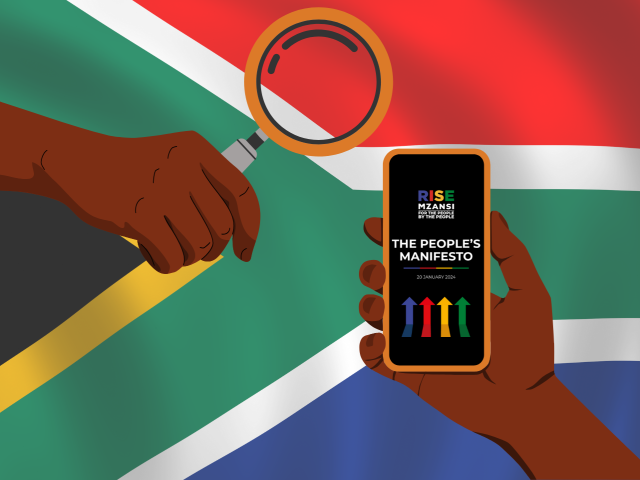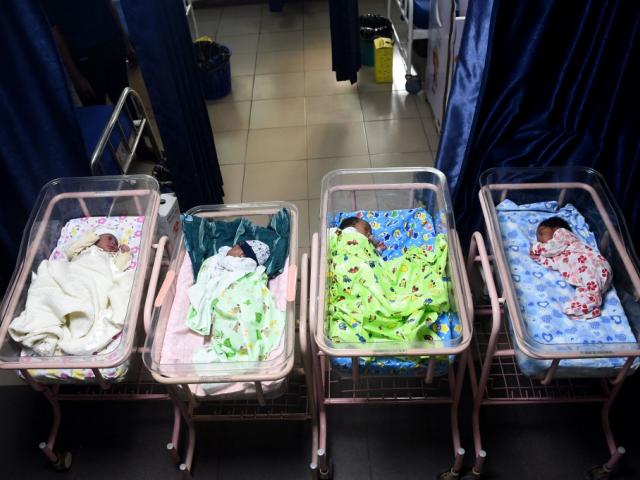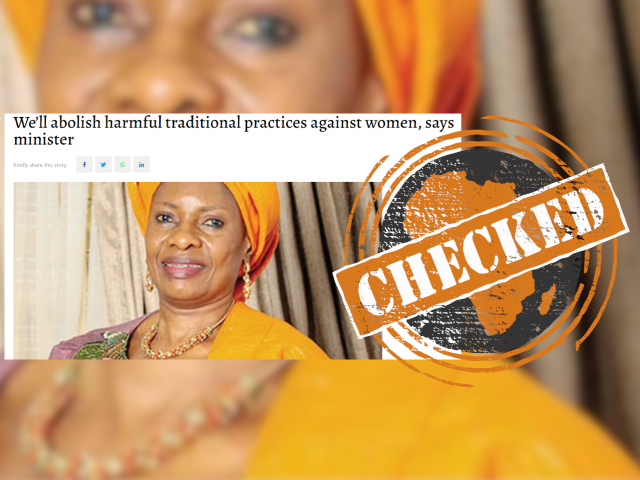-
Nigeria’s health ministry is correct that over 200 million girls and women around the world have survived FGM.
-
The ministry’s claim that Nigeria accounts for about a third of that estimate is however incorrect – the accurate figure is a tenth.
-
Despite being banned in 2015, FGM is still practised in some parts of the country. But there are signs that the tide is turning.
Nigeria’s federal health ministry says it has made significant gains in ending female genital mutilation (FGM), a harmful practice that still takes place in the country despite being illegal.
In a February 2024 post on X, formerly Twitter, the ministry said its efforts included strategies to stop the practice and deal with its consequences.
It then gave a startling estimate of Nigeria’s burden: “Over 200 million girls and women are survivors of FGM globally, and Nigeria accounts for about one-third of this estimate.”
We took a closer look at what the data says.
The World Health Organization (WHO) defines female genital mutilation as any procedure involving the removal of or injury to the external female genitalia for non-medical purposes.
It is largely practised for cultural and social reasons. But the international health agency says FGM violates the human rights of girls and women and is an extreme form of gender discrimination.
Nigerian law also stipulates a jail term of up to four years or a N200,000 (about US$486) fine for offenders.
The ministry’s team told Africa Check via X that its data came from the WHO and the US National Library of Medicine.
FGM rate dropping in Nigeria
To assess the claim, Ann-Beth Moller, a technical officer at WHO, and Dr Edmund Ossai, from the department of community medicine at Ebonyi State University in Abakaliki, Nigeria, referred us to Unicef, the United Nations children's agency.
The latest global data on the proportion of girls and women subjected to FGM is found in a 2023 Unicef database. The database covers girls and women aged 15 to 49 in 31 countries.
“Yes, there are 200 million women and girls survivors of FGM globally,” Victor Atuchukwu, a child protection specialist at Unicef, told Africa Check.
Of the 31 countries, Somalia has the highest prevalence of FGM at 99.2%. Guinea is second with 94.5%. The prevalence in Nigeria is reported as 19.5%, with the data attributed to the 2018 Nigeria Demographic Health Survey.
The latest data in Nigeria shows that prevalence is declining. The 2021 multi-indicator cluster survey, conducted by Unicef and the National Bureau of Statistics, among others, found that the prevalence of FGM in Nigeria among women aged 15 to 49 is now 15.1%.
The health ministry’s social media team said they meant to say “one-quarter of the estimate (200 million) as stated in a paper published in the National Library of Medicine”.
Without giving us the specific source, Africa Check searched the library, which is run by the US National Institutes of Health, and found a paper in the journal Annals of Medical & Health Sciences Research.
The paper includes the ministry's revised figure: “Nigeria, due to its large population, has the highest absolute number of female genital mutilation (FGM) worldwide, accounting for about one-quarter of the estimated 115–130 million circumcised women in the world.”
One third of the 200 million estimate is 66.7 million.
Nigeria accounts for 10% of global burden
We asked Atuchukwu if the claim was correct. He said Nigeria accounted for nearly 20 million survivors.
“Nigeria has the third highest burden of FGM globally and accounts for 10% of the 200 million women and girls who are survivors of FGM globally, estimated at nearly 20 million,” said Atuchukwu.
This represents a tenth of the 200 million girls who have undergone FGM –and not a third or a quarter as the ministry claimed.
‘FGM should be combated through education’
FGM is an accepted practice in some families and cultures in Nigeria, said Dr Olajumoke Ogunro, a consultant obstetrician and gynaecologist at the Alpha Assisted Reproductive Klinic in Lagos.
“One way to eliminate FGM is to educate traditional leaders, community leaders and women in rural and urban areas. We must speak to them about the risks and realities of the practice,” she said.
Ogunro added that girls should also be included in the conversation so that they could learn about their right to decide what happened to their bodies.








Add new comment